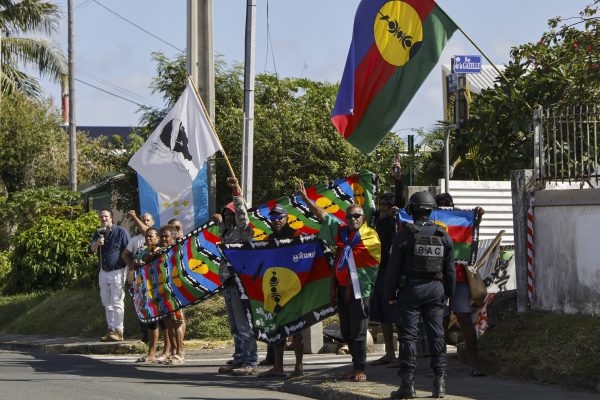While the immediate unrest has paused, Kanaks say that sustainable peace is dependent on their grievances being addressed.
NOUMEA, NEW CALEDONIA — Noumea’s international airport was deserted on my arrival in early July. It was the calm after the storm. In mid-May, unrest had erupted across the islands of New Caledonia. Pro-independence activists had protested in rage at electoral reforms adopted by the French Parliament, more than 16,000 kilometers away in Paris, that would have changed voter demographics in the French overseas territory in favor of loyalists.
“The French Government still has a colonial strategy in New Caledonia,” Maurice, a member of the Kanak and Socialist National Liberation Front (FLNKS), told me later in Noumea.
Nearly two months after the protests began, French gendarmes in black riot gear and dark sunglasses eyed our shuttle bus as it drove through the new airport checkpoint. Rows of coiled barbed wire lined the roadsides. Barricades and debris had been cleared along the highway, but indigenous Kanak activists left verge-side messages. A large sheet of iron propped in view of oncoming traffic proclaimed “Stop the Colonial Repression.” Then, on a hillside overlooking the road, a group of youths sat in front of a large wooden replica of Jesus crucified on the cross.
On our way to the city, the bus detoured into an outlying suburb and we abruptly stopped in front of barricades blocking the street.
Continue Reading on The Diplomat
This preview shows approximately 15% of the article. Read the full story on the publisher's website to support quality journalism.
